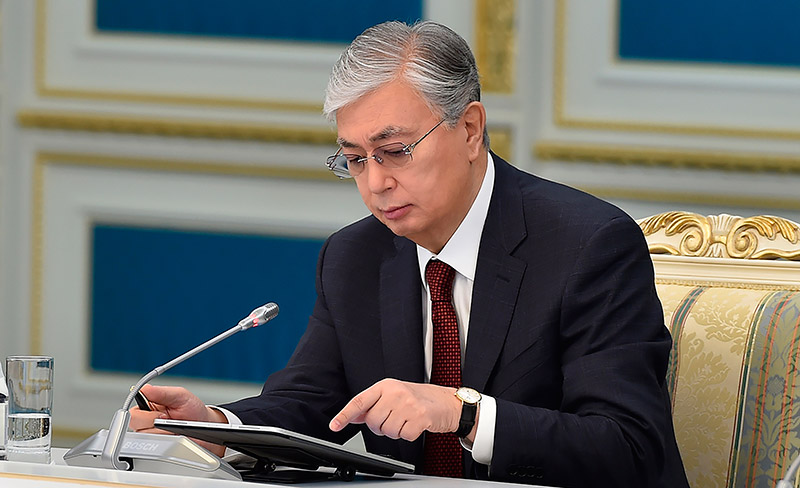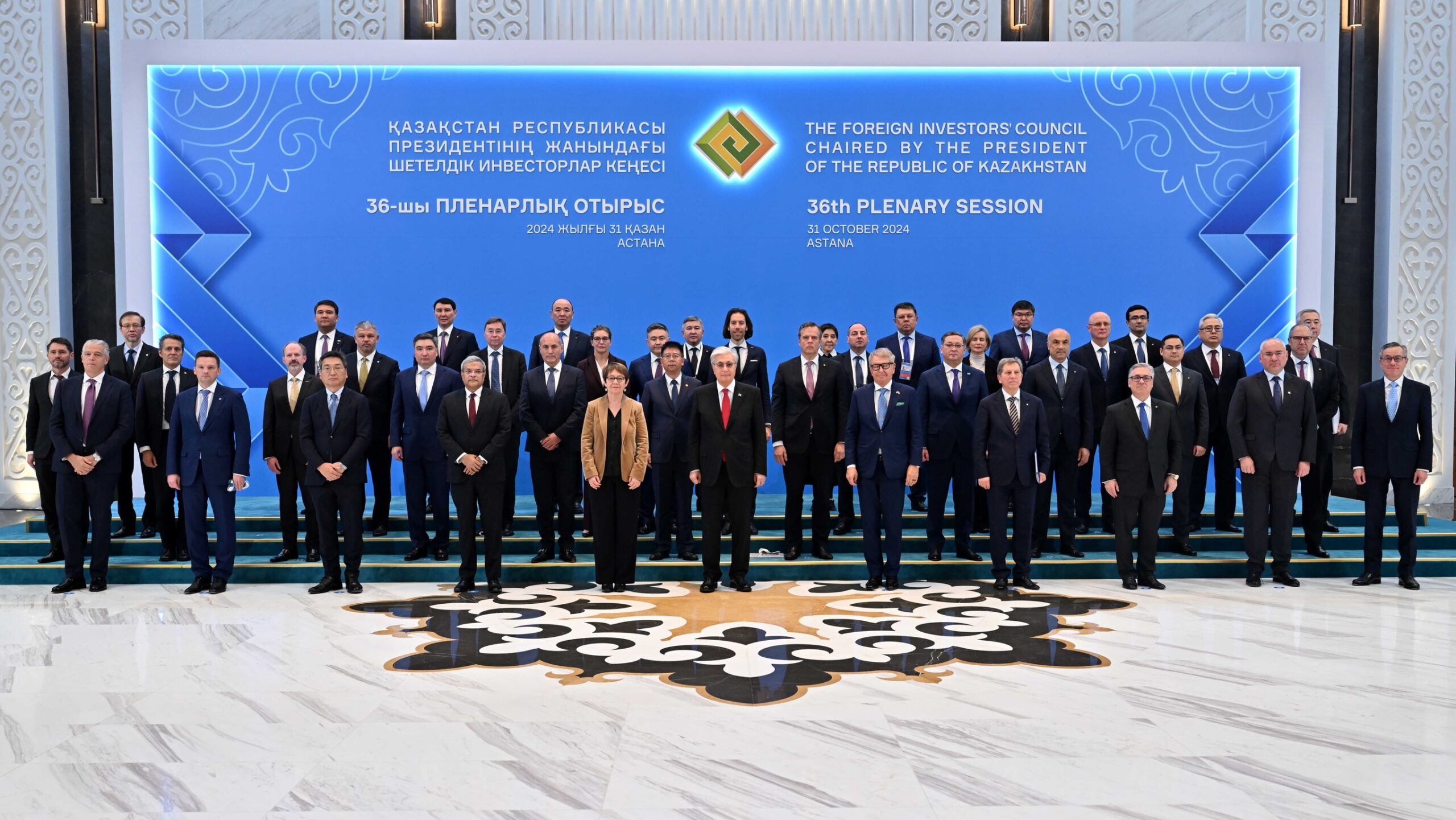ASTANA — In 2024, Kazakhstan embarked on a transformative path with significant legislative reforms to strengthen the national scientific system, boost investment, and enhance social protections, all while addressing key challenges for development.

Photo credit: Shutterstock.
National Development Plan until 2029
The government adopted the National Development Plan until 2029, which outlines the country’s medium-term strategy and key national indicators. The plan is based on five principles: fostering competition, protecting entrepreneurship through transparent economic policies, enhancing education and creativity, boosting economic productivity, and addressing regional inequalities.

Photo credit: akorda.kz
Structural reforms are central to liberalizing the economy. A decree, guided by President Kassym-Jomart Tokayev’s February directive, focuses on institutional support, including establishing the National Privatization Office and improved governance of the Samruk Kazyna Sovereign Welfare Fund and its subsidiaries. The reforms also aim to simplify regulations for business operations by digitizing access to quasi-government services and easing utility connection processes.
Additionally, the decree emphasizes protecting business rights by decriminalizing certain economic offenses, coordinating restrictive measures with prosecutors, and supporting legitimate business interests. By aligning these reforms with OECD standards, Kazakhstan aims to become a regional hub for technology and investment.
Enhancing investment climate
Kazakhstan has introduced several initiatives to enhance its investment climate and attract domestic and foreign investors. At the 2024 Kazakhstan Global Investment Roundtable (KGIR), $7 billion in agreements were signed, showcasing Kazakhstan’s commitment to attracting substantial foreign direct investment.

According to Kassym-Jomart Tokayev, the Foreign Investors’ Council has become the most important venue for discussing topics related to improving the investment climate. Photo credit: Akorda.
The Foreign Investors’ Council, chaired by Tokayev, is a key platform for addressing investor concerns and improving processes. At this year’s meeting, Tokayev highlighted Kazakhstan’s ranking among the top 35 most competitive countries globally, according to the International Institute for Management Development (IMD), and set an ambitious goal to attract $150 billion in foreign direct investment by 2029.
To achieve this, the Investment Headquarters has been granted expanded powers to resolve issues quickly, supported by a recent presidential decree promoting the liberalization of the national economy. Tokayev emphasized efforts to protect investor rights, improve regulatory policies, and modernize the legal and judicial systems.
A national digital investment platform will be launched by year-end, enabling real-time monitoring of projects. A new Tax Code will introduce preferences, including full deduction for machinery, equipment, and software expenses.
The Astana International Financial Centre (AIFC) plays a pivotal role in incorporating global best practices to foster financial cooperation.
AI at the forefront of innovation
Kazakhstan is making strides in artificial intelligence (AI). The Ministry of Digital Development, Innovation, and Aerospace Industry is leading initiatives like forming an AI Committee, approving a 2024-2029 AI development plan, and drafting AI regulations. According to Minister Zhaslan Madiyev, the Alem.AI international center will function as a hub for startup acceleration and research, while Tomorrow School and TUMO Education will train over 1,000 students annually in programming, robotics, and creative technologies alongside 1,000 skilled professionals.
The country also launched its language model, KazLLM, designed to support domestic technological solutions, protect personal data, and ensure national independence. Currently trained on 148 billion tokens, KazLLM drives AI-based products like eGov assistants and legal services. President Tokayev emphasized thorough legislative work on AI this December, highlighting its vast potential alongside significant risks, and announced the creation of the Council for the Development of AI with international experts.
New Water Code
Kazakhstan’s Parliament has developed a new Water Code focusing on water security and ecological preservation. It establishes five key principles: recognizing water as essential for life and development, valuing water resources financially, integrating surface and groundwater use, promoting conservation, and involving the public in water management. The code formalizes concepts like ecological runoff to protect ecosystems by ensuring minimum water levels in rivers, lakes, and seas. With 121 articles, the code tackles water scarcity, pollution, and transboundary water management issues, implementing stricter controls, including state investigations to curb mismanagement and illegal use of water resources.
In November, the Mazhilis, a lower chamber of the Kazakh Parliament, endorsed the code.
Digitalizing water management is a central reform. Kazakhstan aims to launch the National Water Resources Information System by 2025. This system will provide real-time monitoring and advanced flood and drought forecasts. The Tasqyn system, currently under development, will enhance flood prediction and emergency preparedness. Additionally, Kazakhstan plans to digitize 3,500 kilometers of irrigation networks, starting with automated water metering in the Kyzylorda Region. The goal is to reduce water consumption by 0.5 cubic kilometers annually.
Kazakhstan is also strengthening its role in water diplomacy, securing equitable water allocations from the Shu, Talas, and Syrdarya rivers with Kyrgyzstan and Uzbekistan. Ongoing negotiations with China address shared management of over 20 rivers. Kazakhstan’s chairmanship of the International Fund for Saving the Aral Sea underscores its commitment to regional water security. The country has also joined the UN Convention on the Law of the Non-Navigational Uses of International Watercourses to promote equitable water distribution.
In 2024, Kazakhstan expanded its irrigated agricultural land by 150,000 hectares, adopting water-saving technologies such as drip and sprinkler irrigation, which reduce water consumption by up to 50% while boosting crop yields. Incentive programs and farmer training initiatives support water conservation, helping address scarcity and improve the agricultural sector’s economic performance.
New social legislation: advancing science, women’s and children’s rights
Kazakhstan aims to advance its scientific and technological policy by enhancing the national scientific system. The law defines the roles of scientific entities, the legal status of the National Academy of Sciences, and the Science Fund while setting financing mechanisms. The law seeks to address legal gaps, improve training for scientific personnel, ensure social protection for scientists, and introduce corporate governance.

Photo credit: Akorda
Drawing on the experiences of developed nations, the policy focuses on elevating scientific and innovative work, narrowing the innovation gap with global leaders, and fostering commercial use of new knowledge. To incentivize scientists, the law includes provisions for housing assistance in partnership with Otbasy Bank. It aims to boost the country’s competitiveness by effectively applying scientific advancements and improving intersectoral coordination in innovation.
President Tokayev signed amendments to laws regarding women’s rights and children’s safety on April 15. The changes, which respond to Tokayev’s previous calls for stricter measures against violence, criminalize domestic violence, cyberbullying, and bullying of minors and tighten penalties for pedophilia and child murder, including life imprisonment.
The law introduces administrative liability for causing or encouraging suicide and mandates educational institutions to report crimes involving children. It also establishes a legal framework for family support centers, strengthens marriage and family laws, and creates a contact center for family issues. Additionally, it prohibits the removal of children under 16 from public transport if they cannot pay the fare.
Efforts to combat violence are showing results, with a reduction in crimes against women, according to the Prime Minister’s press service. In 2024, Kazakhstan received around 100,000 reports of domestic violence, with 72,000 protective orders issued. The country also boasts 69 crisis centers providing support to victims. Over the past five years, the number of violent crimes and murders has halved, demonstrating the effectiveness of these comprehensive measures.
Kazakhstan’s 2024 legislative reforms reflect a strategic vision to drive innovation, attract investment, and enhance social protections. The National Development Plan lays the groundwork for economic liberalization, while the new Water Code and AI-driven policies position Kazakhstan as a regional tech hub. Social reforms, including stricter penalties for domestic violence and measures to protect women and children, further strengthen the country’s social framework.
Looking ahead, Kazakhstan’s forward-looking policies position it to achieve sustainable growth while reinforcing its regional influence. These policies will ultimately shape a more innovative, secure, and prosperous future for its citizens and the broader Central Asian region.
